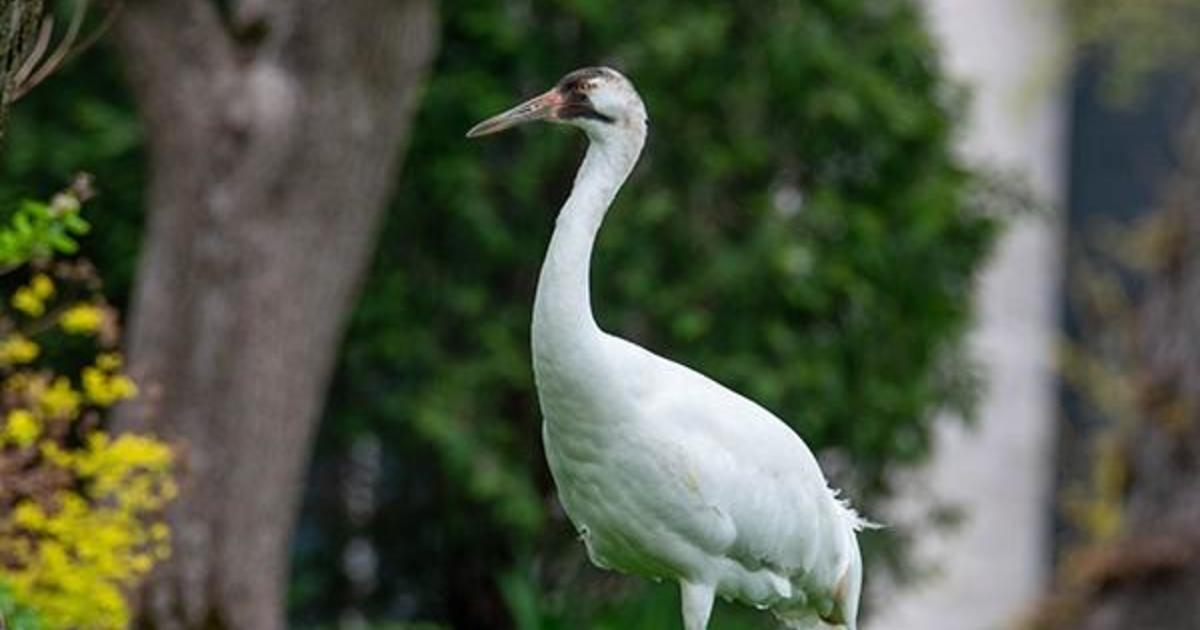Could House Cats Be Vulnerable To COVID-19?
CHICAGO (CBS) -- Since the start of the coronavirus pandemic, the veterinary science community has been racing to answer how the virus affects animals.
Experts in Illinois were a part of the team who confirmed the case of a COVID-19 animal in the U.S.
CBS 2's Marissa Parra on Wednesday explained how the results from a tiger at the Bronx Zoo is leading the discussion on what to do with our pets at home.
Among those who ran the tests on Nadia the Bronx Zoo tiger were experts in Illinois.
Dr. Karen Terio, chief of the Zoological Pathology Program at the University of Illinois, got the call from the Bronx Zoo on Wednesday of last week after Nadia was coughing and showing symptoms. By Friday, her team received her swab sample and confirmed her as positive for COVID-19.
Although a big moment for science, "it was a huge, stomach-sinking moment for us," admitted Dr. Terio.
Malayan tigers like Nadia are critically endangered, so there was the fear that this could put them in harms way or incentivize people to kill them out of fear.
There was also the concern about what the scientific breakthrough could mean in the future.
"It really worried us," Dr. Terio said, "not just the cats in our care within zoos, but what does this mean for domestic cats."
Nadia is the only one at the zoo who has been tested, but several lions and five other tigers are showing the same coughing symptoms. So far, they are doing well and expected to make a full recovery.
Zoologists believe it was an asymptomatic zoo worker who spread the virus to. The question is, is it possible one of us could do the same with one of our pets?
"At this point, we don't know," Dr. Terio said. "We think that domestic cats may be susceptible."
Susceptible, but the risk is likely low. Think about this – millions of Americans have pets, and the U.S. has well over 400,000 cases of COVID-19. But the number of cases so far in pets here is 0.
Tigers and domestic cats are both felines, but they are also totally different species with different DNA and receptors, which determine how the animal responds to a virus.
Recent preliminary studies show tigers are among the animal species to show susceptibility to SARS, another coronavirus. So it's also possible that tigers could also be more susceptible to COVID-19 than a domestic cat, but we just don't know yet.
"Just in case, if you are sick, in addition to social distancing from other people, you also social distance from your pet," Terio said.
Even Chicago area zoos like the Brookfield Zoo are practicing social distancing between zookeepers and animals out of an abundance of caution, with particular concern now for tigers and primates, who humans share the most DNA with.
So far, research and data do show there is no evidence yet that your pets can spread the virus to you, but if for some reason your pet is showing symptoms after coming in contact with someone who has COVID-19, go ahead and call your veterinarian.
And no, the tiger at the Bronx Zoo did not take your place in line to get a test. A COVID-19 test for animals looks completely different than a human test. They cannot even be sent to the same laboratories. Thus, there is no competition.



